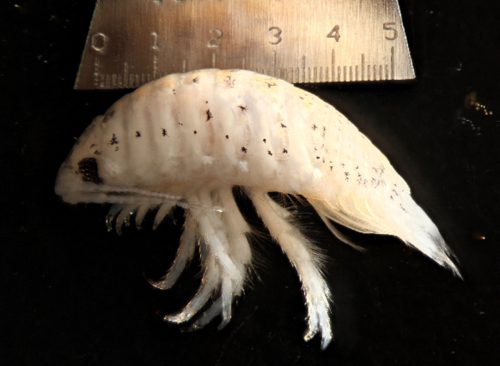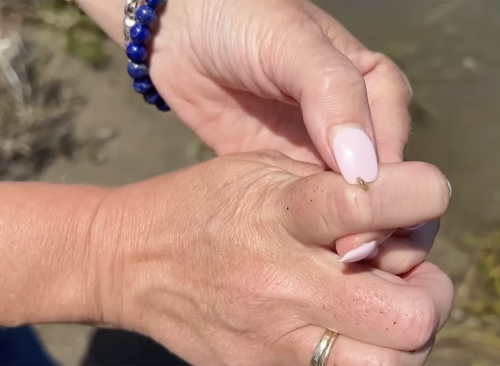Flesh-Eating, Blood-Drawing, Piranha-Like Bugs Are Terrorizing People on California Beaches
They are like something out of a horror movie

The classic 1978 movie Piranha tells the story about flesh-eating fish being released into a river and feasting on the feet (and bodies!) of swimmers. While happening upon one of the prehistoric swimmers anywhere in the United States is beyond unlikely, as they are very rarely identified domestically, beachgoers in Southern California have been experiencing a similar but much less bloody battle. Aggressive, blood-drawing bugs nicknamed “mini sharks” are attacking the feet of swimmers.

According to multiple reports, water-line isopods (Excirolana chiltoni) have been biting at the ankles of swimmers and leaving them in serious pain. Per Walla Walla University the blood-drawing bugs reportedly look like shrimp and are a somewhat common species that can grow up to 0.3 inches and form swarms of 1,000.

San Diego resident Tara Sauvage tells CBS8 San Diego that being bit by one of the buggers was “painful” and “surprising.” She said: “I had blood all over my foot and in between my toes. It was like small piranhas had bit me.” After the bite, she rinsed her feet off, and luckily, the pain went away in 15 to 20 minutes.

Apparently, they have a thing for humans and animals alike. “They like to eat fresh meat like a dying animal or battered animal,” added Ryan Hechinger, a professor at Scripps Institution of Oceanography. “They are totally known to bite people.”

However, in the bigger scheme of things, they help out more than they harm, says Hechinger. He deems them a crucial part of the underwater “ecosystem,” equating them to aquatic custodians. “They’re nothing bad,” he said “They eat dead fish so it doesn’t stink like dead fish in the water.”

While getting bitten by one isn’t going to result in a serious injury, if you encounter a swarm of them it could be like a scene out of a horror movie. A teen swimmer in Melbourne, Australia, learned this the hard way in 2017, when he encountered a swarm of them who took out chunks of his skin, according to a BBC report. “It’s only when you get the potential for hundreds or thousands of them to start biting you, for a long period, that you get the type of injury that [he] had,” professor Richard Reina, from Monash University, Australia, explained at the time. “Unless you’re effectively numb, [usually] you’re going to notice and get out of the water before that happens.”














